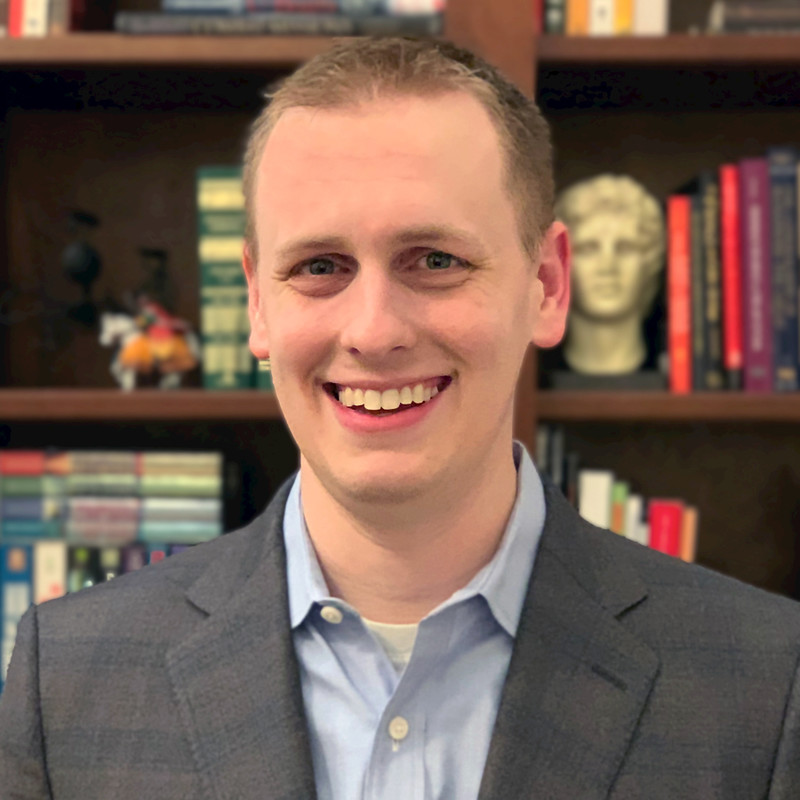 In a world where technology often takes center stage, Stuart Michelson offers a refreshing perspective that puts humanity front and center. Echoing the words of COL John Boyd, Stuart believes “People Should Come First. Then Ideas. Then Hardware.” Join us as we explore the mind of this exceptional researcher and educator. Prepare to rethink your approach to engineering and human systems.
In a world where technology often takes center stage, Stuart Michelson offers a refreshing perspective that puts humanity front and center. Echoing the words of COL John Boyd, Stuart believes “People Should Come First. Then Ideas. Then Hardware.” Join us as we explore the mind of this exceptional researcher and educator. Prepare to rethink your approach to engineering and human systems.
Stuart's passion for human-centered design shines through in his 15+ years of experience at the Georgia Tech Research Institute (GTRI). As a senior research faculty member and Associate Division Chief for the Human Centered Engineering Division within GTRI, he leads impactful research initiatives at the intersection of human systems engineering and unmanned systems. Stuart is also a Faculty Affiliate in Georgia Tech’s Institute for Robotics and Intelligent Machines (IRIM) as well as Georgia Tech’s Human-Computer Interaction Master’s program. Based on his vast experience as a manager and strategic thought leader in the Human Systems space at GTRI for many years, Stuart has been elected as chair of the National Defense Industrial Association’s (NDIA) Human Systems Division.
Throughout his career, Stuart has championed the value of involving human systems experts early in concept development. He believes that "too often the analyses and definition of the role of humans is supplanted by excitement over hardware, and later when systems begin to fail or don’t perform as intended, the task of fixing the problems is much more difficult and expensive." By considering human capabilities and limitations upfront, Stuart has contributed to the success of programs across aviation, robotics, and mission planning.
Specifically, Stuart points to projects where human systems engineers participated in the formative stages as most impactful. These "Mission Engineering activities" help realize systems that both meet capability needs and can be sustained responsibly. Stuart is proud of contributing to such initiatives for military aviation, battlefield robotics, and mission planning systems.
This human-first mindset also influences Stuart's teaching philosophy. He leverages storytelling techniques to impart key concepts in a memorable way. His classes aim to eliminate confusion between common terms like "human systems integration" and "human factors engineering." Stuart enjoys teaching as it reinforces his own mastery of the material.
In particular, Stuart strives to have students understand the distinct meanings of the many terms used in human systems. He finds that utilizing narrative structure and group activities helps reinforce student learning.
When envisioning the future, Stuart anticipates a time when the value of human systems is universally recognized across the defense industry. He sees emerging areas like digital engineering, human-machine teaming, and autonomous systems as prime opportunities to incorporate human considerations in innovative ways.
Stuart notes that GTRI's blend of academic and applied experience makes it uniquely positioned to educate the next generation of defense innovators. He asks potential students, "Who better than Human Factors professionals to deliver instructional content in a manner that accommodates how people learn and think?"
What makes GTRI stand out are the depth and diversity of research combined with educators who apply real-world experience in the classroom. This equips students with technical knowledge and practical skills for their careers.
So for those looking to advance defense technology while keeping the human at the forefront, Stuart Michelson and GTRI offer a compelling option. They invite you to rethink conventional approaches and join in pioneering people-first solutions.
Stuart is part of a team of GTRI instructors for the following courses:
Introduction to Human Systems Integration
Fundamentals of Modern Systems Engineering

